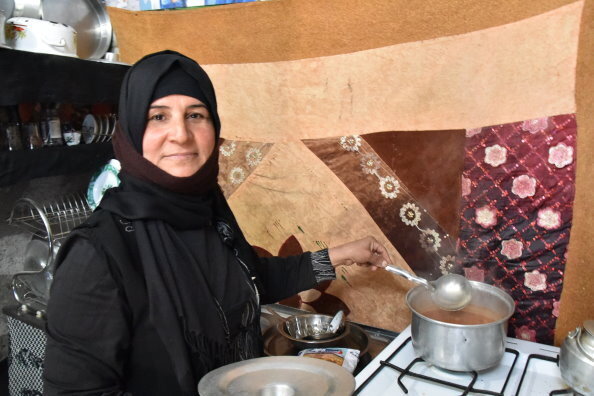
QNET, Bernhard H. Mayer pave way for consumers to have unique style responsibly
Companies like QNET and Bernhard H. Mayer pave the way for consumers to express their ...

The United Nations World Food Program (WFP) has received South Korea extended a $1 million flexible contribution to the World Food Program to provide food assistance for vulnerable internally displaced families in Iraq.
The South Korean contribution will help meet the food needs of some 53,400 internally displaced people (IDPs) for one month. Many people are still unable to return home, facing significant challenges such as lack of security, employment opportunities and services in their areas of origin.
“The Republic of Korea, an exceptional example of transformation from recipient to donor, has always sought to give back to the international community for all it has received,” said Jang Kyung-Wook, Republic of Korea Ambassador to Iraq.
“We hope our contribution supports the efforts made by WFP to help IDPs rebuild their lives and regain economic independence.”
WFP is prioritizing IDPs in camps in nine governorates across Iraq. They will receive assistance through cash-based transfers (CBT), which gives people the freedom to buy the food they need based on their dietary needs and preferences.
“WFP is grateful to the Republic of Korea for this timely contribution and its ongoing and generous support,” said WFP Representative in Iraq Abdirahman Meygag.
“Flexible – or unearmarked – funding allows WFP to prioritize programs in Iraq in most need of urgent support, and we hope other donors will follow suit. We look forward to continuing our partnership with the Republic of Korea.”
Flexible funding represents just five percent of the total resources provided to WFP in 2019.
Over the past year, the WFP continued to work closely with the Ministry of Migration and Displacement (MoMD) to ensure value for money in the use of government and donor resources.
The WFP topped-up rations distributed by MoMD in IDP camps with food or cash assistance. By the end of 2019, this complementary approach led to savings of $6.2 million in cash assistance, plus 1,900 tons ($1.2 million) of food assistance. The savings are being used in 2020 to continue prioritizing those most vulnerable.
Companies like QNET and Bernhard H. Mayer pave the way for consumers to express their ...
DHL Global Forwarding announced the first investment of the Prada Group in Sustainable Aviation Fuel ...
Gianpiero Nacci, Director for Sustainable Business and Infrastructure of the European Bank for Reconstruction and ...


اترك تعليقا